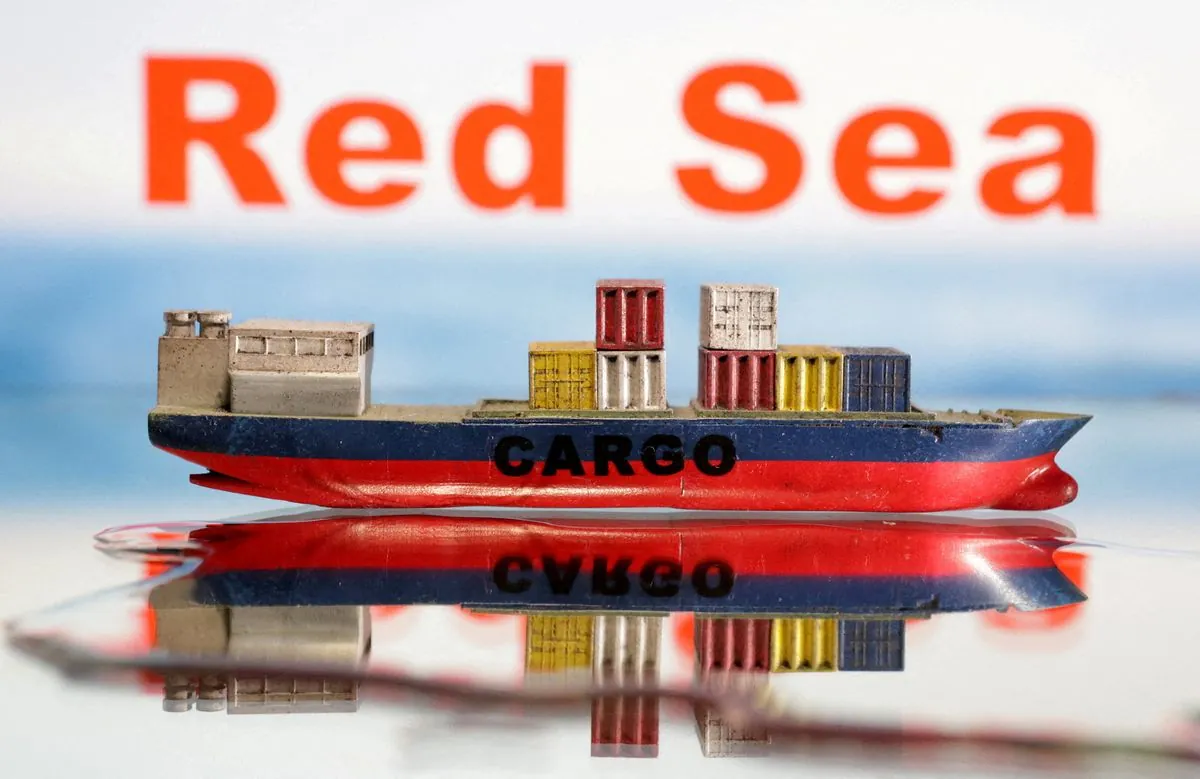In a concerning development for maritime security, Greek shipping companies are facing increased threats from Yemen's Houthi rebels in the Red Sea. The situation has escalated since November 2023, with nearly 100 attacks on ships crossing this vital waterway.
A Greek shipping executive received a menacing email in late May 2024, warning of potential attacks on the company's vessels. The message, sent by the Yemen-based Humanitarian Operations Coordination Center (HOCC), threatened "sanctions" for the entire fleet if they continued to dock at Israeli ports.
This email campaign marks a significant shift in Houthi tactics. Previously focusing on vessels with ties to Israel, the US, and the UK, the rebels are now casting a wider net, targeting Greek merchant ships with little or no connection to Israel. Greek-owned vessels, representing one of the world's largest fleets, have been involved in nearly 30% of Houthi attacks up to early September 2024.
The threats have prompted many shipping companies to reconsider their routes. Some Greek-operated firms have decided to end Red Sea journeys altogether, opting for the longer route around Africa. This shift has led to a dramatic decrease in Suez Canal traffic, from around 2,000 transits per month before November 2023 to approximately 800 in August 2024.
The European Union's naval force, Aspides, has confirmed the evolution of Houthi tactics. In a closed-door meeting with shipping companies in early September 2024, Aspides described the extension of warnings to entire fleets as the "fourth phase" of the Houthi military campaign in the Red Sea.
To mitigate risks, Aspides has advised ship owners to switch off their Automatic Identification System (AIS) transponders. Data shows that Houthi missile strikes have 75% accuracy when aimed at vessels with AIS on, but 96% of attacks miss when AIS is off.
The impact on the shipping industry has been significant. Insurance costs for Western ship owners have skyrocketed, with some insurers suspending cover altogether. Companies like Conbulk Shipmanagement Corporation and Leonhardt & Blumberg have stopped Red Sea voyages due to safety concerns.
"No (Conbulk) vessel is trading in the Red Sea. It mainly has to do with the crew safety. Once the crew is in danger, all the discussion stops."
Despite the risks, some companies continue to use the Red Sea route due to long-term agreements or specific transportation needs. The Red Sea remains the fastest way to transport goods between Europe and Asia, handling about 12% of global trade.
Interestingly, Chinese and Russian-owned ships are largely unaffected by Houthi attacks, as they are not perceived as affiliated with Israel. This selective targeting highlights the complex geopolitical nature of the conflict.
As tensions in the Middle East continue to escalate, the situation in the Red Sea remains volatile. The recent Iranian missile strikes against Israel in retaliation for the killing of militant leaders in Lebanon underscore the broader regional instability affecting maritime security.
The ongoing challenges in the Red Sea serve as a stark reminder of the intricate relationship between geopolitics and global trade. As shipping companies navigate these turbulent waters, the international community faces the task of ensuring safe passage through this crucial maritime route.
